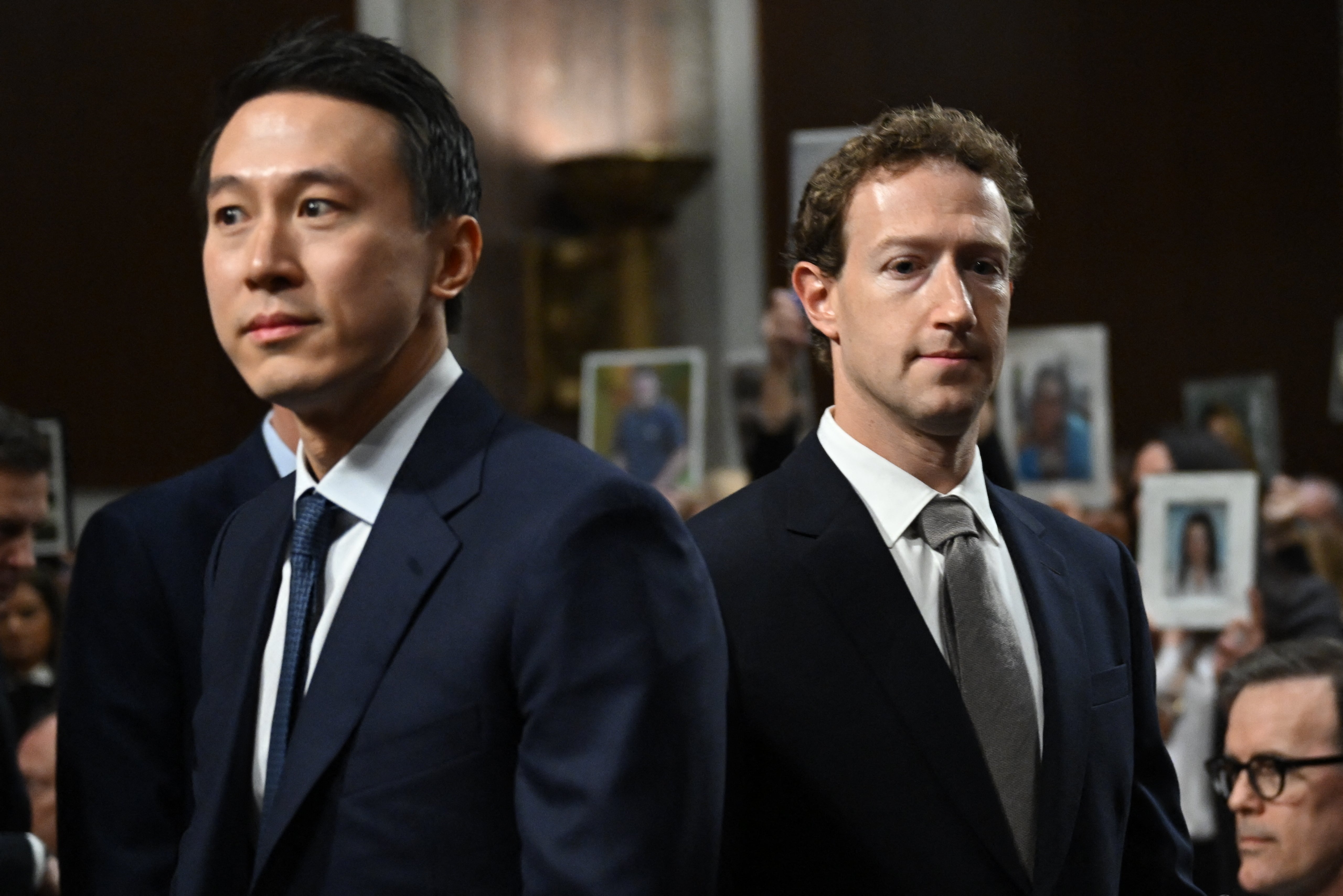2025 is the year when the internet could finally die and the consequences will be huge
Technology has never been more complex, and the industry has never been more powerful. Its leaders are now our leaders, whether we like it or not, writes Andrew Griffin and what comes next looks increasingly like a threat


The 2000s will probably go down as the decade that the technology industry built its foundations. After having made it through the millennium bug, and with key technologies such as Google just a couple of years old, the first decade of the century saw the number of internet connections and their speed expand drastically, and the size and price of devices shrink, leading to the proliferation of hardware such as the iPod and the laptop.
By the end of that first decade, we had a version of the internet of today: a world of powerful, prevalent computers, streaming media, online shopping and the first inklings of social networks.
The 2010s were the years that the real world truly embraced that new online world. Social networks expanded so dramatically that they became almost the entire media: everything from the music industry to news to your friends became wrapped up in a swirl of posts and feeds. The internet left the computers and phones that it had grown up and spread everywhere and into the real world: our home appliances, our cars, our relationships.
And so, by the time the third decade of this century began, the internet underpinned just about everything. Distances were shortened, and connections were instant – though there was a growing sense that both of those facts left us feeling more detached and alone than ever. Still, by the time 2020 began and the pandemic hit, the world was ready to migrate largely online, with much of what we see mediated by some sort of computer.

But now that we are halfway through this decade, it seems more difficult than it might be expected to see what trends or innovations might last into its second half and beyond. The great technological innovations of the decade so far have largely been about overpromising: that bitcoin would transform the financial system, that NFTs would transform our relationship with owning things, that the metaverse would transform our relationship with virtual worlds and each other, that AI would transform our knowledge. Our relationship with all of those things remains largely the same, just a little more tense and tiring.
It may be that the rest of this decade delivers on those promises, and there are reasons to think it might. After years of promising that augmented reality and the metaverse would bring a whole new way of mixing digital and real worlds, both the newly rebranded Meta and Apple have released genuinely exciting new technology that offers a hint that might happen.
As the hype recedes around artificial intelligence, the clever people and money are finding ways that it might actually improve our lives and the world. And in the quieter, less divisive parts of the technology industry – those projects to build new kinds of sustainable technology, for instance, or innovative healthcare solutions – genuinely exciting new things are happening that could allow us to address global crises such as climate change and health inequalities.
But those divisive issues continue to take up much of our time, money and attention. The latter remains perhaps the most valuable currency there is: if you can get someone to pay attention to you, you can get them to do anything, including electing you to be president of the United States. As Elon Musk found this year, the quest for attention might even help you find your way into government without having to actually go through anything as tawdry as an election, if you’re willing to spend $43bn on buying a social network and changing it to your whims.
Musk’s ascent – and that of other technologists, including Mark Cuban, a perennial sparring partner who backed Kamala Harris in the US election, perhaps with a similar hope of getting the ear of government – shows how the continuing mixing of technology with culture results in little distinction between celebrities and tech bosses. Today, Elon Musk really just happens to own three of the most important technology companies in the world; really, like everyone else who matters, he has the power and desire to hoover up attention.
Some in the tech world appear to have backed away from culture and the clashes that it brings. TikTok grew so fast through the pandemic that it keeps getting banned, and has spent much of the last couple of years trying to quietly save itself. Mark Zuckerberg began this decade as one of the world’s most mocked and maligned men, but through an aggressive rebrand he has managed to back away from politics and other messy issues; his company has done much the same, changing from Facebook to Meta and at the same time moving away from division and politics into mushy influencer content and AI-generated slop.

Indeed, if there is anything new about the internet in this first half of the decade then it may be that: it looks, increasingly, like a dead place. Perhaps the most obvious consequence of the rise of AI systems is that they have allowed social networks to be populated with automated accounts and artificial media, and their increasing complexity means that it is just harder to tell when that is happening. That has led to the rise of the “dead internet theory”, which posits that much of the web is just automated systems talking to each other; studies suggest that 2024 may indeed have been the year when most of the internet became automated.
There are good reasons for that malaise. The era of cheap money that meant tech companies could borrow vast sums without much hope of paying it back – which powered everything from Uber to Amazon – is now passed, and so our collective ambition has constricted at the same time. The proliferation of internet connections has perversely brought with it a kind of fracturing, meaning that there are many versions of the web and therefore little hope of a truly big change.
Technology has never been more complex, and the technology industry has never been more powerful. Its leaders are now our leaders, whether we like it or not. But the latter half of the decade may be defined by our response to that lack of innovation: if the internet is dead, how do we want to live?
Join our commenting forum
Join thought-provoking conversations, follow other Independent readers and see their replies
Comments
Bookmark popover
Removed from bookmarks